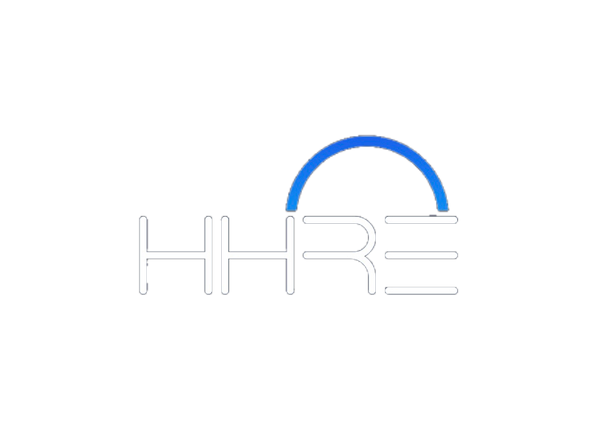
Home Inspections: Key Components and Considerations
When it comes to residential inspections, a thorough evaluation is vital in ensuring a property's value, safety, and overall condition. Professional inspectors meticulously search for specific components that can make a significant difference in your real estate journey. At Hard Hat Real Estate, we recognize the importance of these components that inspectors typically search for, and we're here to guide and inform you on their significance.
Whether you're a homebuyer, seller, or investor, understanding what inspectors look for can empower you to make informed decisions. These crucial elements encompass various aspects of a property's structure, systems, and overall functionality. From foundation to roofing, plumbing to electrical systems, no stone is left unturned as inspectors conduct their comprehensive evaluations.
Join us on this journey as we describe each of these key components, providing you with valuable knowledge to navigate the residential inspection process with confidence.
-
Foundation: The foundation is the backbone of a property, and inspectors carefully examine it for signs of settling, cracks, or other structural concerns that could affect the stability and integrity of the building.
-
Roofing: Inspectors assess the condition of the roof, looking for signs of damage, leaks, deteriorated shingles, or improper installation. They check for any potential issues that could compromise the roof's ability to protect the property from the elements.
-
Plumbing Systems: Inspectors evaluate the plumbing systems, including pipes, fixtures, and drains. They look for leaks, water pressure problems, drainage issues, and ensure proper functionality of faucets, toilets, showers, and other plumbing components.
-
Electrical Systems: Inspectors examine the electrical panel, wiring, outlets, switches, and fixtures to ensure they meet safety standards and are functioning properly. They look for potential fire hazards, overloaded circuits, improper grounding, or outdated electrical components.
-
HVAC Systems: The heating, ventilation, and air conditioning systems are thoroughly inspected for proper operation, maintenance, and efficiency. Inspectors check the condition of the equipment, air filters, ductwork, and assess the overall performance of the system.
-
Exterior Structure: Inspectors evaluate the exterior walls, siding, windows, doors, and trim for any signs of damage, water intrusion, rot, or inadequate insulation. They also check for proper installation and sealing of windows and doors. Inspectors assess the condition and functionality of exterior amenities such as decks, patios, porches, fences. They look for signs of damage, safety concerns, or compliance with relevant regulations.
-
Interior Spaces: Inspectors assess the condition of interior walls, ceilings, floors, and stairs for cracks, water stains, or indications of structural issues. They look for signs of water damage, mold, or other potential concerns that could impact the livability and safety of the property.
-
Attic and Insulation: The attic space is inspected for proper insulation levels, ventilation, and signs of moisture problems. Inspectors check for adequate insulation to ensure energy efficiency and identify any issues that could lead to heat loss or moisture-related damage.
-
Crawl Spaces and Basements: Inspectors examine crawl spaces and basements for moisture intrusion, proper ventilation, signs of water damage, and structural issues. They look for potential problems such as dampness, mold, or pests.
-
Appliances and Fixtures: Inspectors test and evaluate the condition and operation of major appliances, including the stove, dishwasher, refrigerator, and HVAC systems. They also assess the functionality and safety of fixtures such as smoke detectors, carbon monoxide detectors, and fire extinguishers.
-
Structural Components: Inspectors inspect load-bearing walls, beams, columns, and other structural elements to identify any signs of damage, deterioration, or compromised integrity. They look for indications of improper construction or potential safety hazards.
-
Drainage and Grading: Inspectors evaluate the grading and drainage systems to ensure water flows away from the foundation, reducing the risk of water damage and foundation issues. They look for improper slope, inadequate drainage, or grading issues that could lead to water accumulation near the property.
-
Fireplace and Chimney: If the property has a fireplace or chimney, inspectors examine their condition, including the firebox, flue, damper, and chimney cap. They assess for any potential fire hazards, structural issues, or signs of improper maintenance.
-
Radon Gas: Inspectors may test for the presence and levels of radon gas, a radioactive gas that can be harmful if accumulated in high concentrations.
-
Mold and Moisture: Inspectors assess for the presence of mold or signs of moisture issues, such as water stains, dampness, or musty odors, which can indicate potential water intrusion or inadequate ventilation.
-
Pest Infestations: Inspectors look for signs of pest infestations, including termites, rodents, ants, or other unwanted pests that can cause damage to the property.
-
Environmental Hazards: Inspectors may check for the presence of environmental hazards, such as asbestos-containing materials, lead-based paint, or hazardous substances that could pose health risks.
-
Insulation and Energy Efficiency: Inspectors evaluate the quality and condition of insulation materials in walls, ceilings, and floors to ensure energy efficiency and identify areas of improvement.
-
Garage Safety: If the property has a garage, inspectors assess the safety features, including proper fire-rated walls, functioning garage door openers, and adequate ventilation.
-
Exterior Drainage Systems: Inspectors examine the effectiveness of exterior drainage systems, such as gutters, downspouts, and grading, to prevent water accumulation and potential foundation problems.
-
Sump Pump: If a property has a basement or crawl space, inspectors may check the functionality of sump pumps, which are designed to prevent water accumulation in these areas.
-
Septic System: In properties with septic systems, inspectors may evaluate the condition and functionality of the system, including the tank, drain field, and associated components.
-
Accessibility Compliance: Inspectors assess compliance with accessibility standards, including the presence of ramps, handrails, and other features to accommodate individuals with disabilities.
-
Pool and Spa Safety: If the property has a pool or spa, inspectors may examine safety features such as fencing, gates, and functioning pool covers to ensure compliance with local regulations.
-
Hazardous Trees: Inspectors may identify and flag any trees on the property that pose a risk due to disease, unstable roots, or proximity to structures.
-
Water Quality: Inspectors may recommend water quality testing to assess the potability and safety of the water supply, especially in properties with private wells.
-
Energy-Conserving Features: Inspectors may evaluate energy-conserving features such as energy-efficient windows, solar panels, or geothermal systems for proper installation and functionality.
-
Safety and Code Compliance: Inspectors ensure that the property meets safety standards and complies with local building codes. They check for the presence and functionality of safety features such as handrails, guardrails, smoke detectors, and proper egress routes. Inspectors also assess other code compliance aspects, such as proper clearance around electrical panels, appropriate spacing of outlets, and adherence to fire safety regulations.
It's crucial to recognize that the specific aspects inspectors search for can vary, as every property and location is unique. Understanding what to look out for in a property inspection requires a flexible mindset and an awareness of the factors that are pertinent to your specific situation.
It's important to work closely with experienced inspectors who take into account property-specific factors to provide accurate and relevant evaluations. Collaboration between you, the client, and the inspector is key to ensure a thorough and customized inspection that addresses the unique characteristics, potential issues, and regional considerations of the property.
As you embark on your real estate journey, rely on the expertise and knowledge of professionals in the industry. Staying informed and adapting to the nuances of each inspection will empower you to make well-informed decisions and maximize the value of your investment.
If you're located in Texas and in need of a qualified home inspector, the Texas Real Estate Commission (TREC) provides a valuable resource. TREC maintains a list of Qualified Sponsoring Professional Inspectors who have met specific eligibility criteria to sponsor Apprentice or Real Estate Inspectors.
To be eligible as sponsors, these Professional Inspectors must have submitted a minimum of 200 inspections and obtained written notice of eligibility from TREC. By utilizing this list, you can find experienced professionals who have demonstrated their expertise and commitment to upholding TREC's standards.
To access the comprehensive list of Qualified Sponsoring Professional Inspectors who are eligible to sponsor Apprentice Inspectors or Real Estate Inspectors in Texas, visit the following link: TREC Qualified Sponsoring Professional Inspectors
By choosing a Qualified Sponsoring Professional Inspector from the TREC list, you can have confidence in their knowledge and skills. These professionals have proven their ability to conduct thorough inspections and provide accurate assessments. They also possess the expertise to guide aspiring inspectors in their professional growth.
Ensure your home inspection needs are met by engaging the services of a qualified inspector from TREC's list. Their experience and adherence to TREC's standards will provide you with peace of mind during the inspection process.
